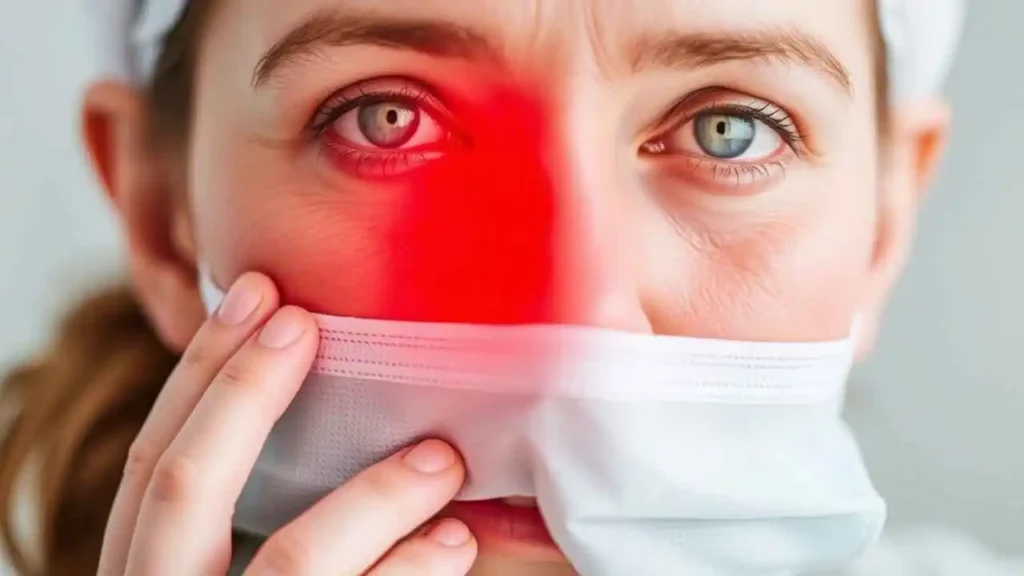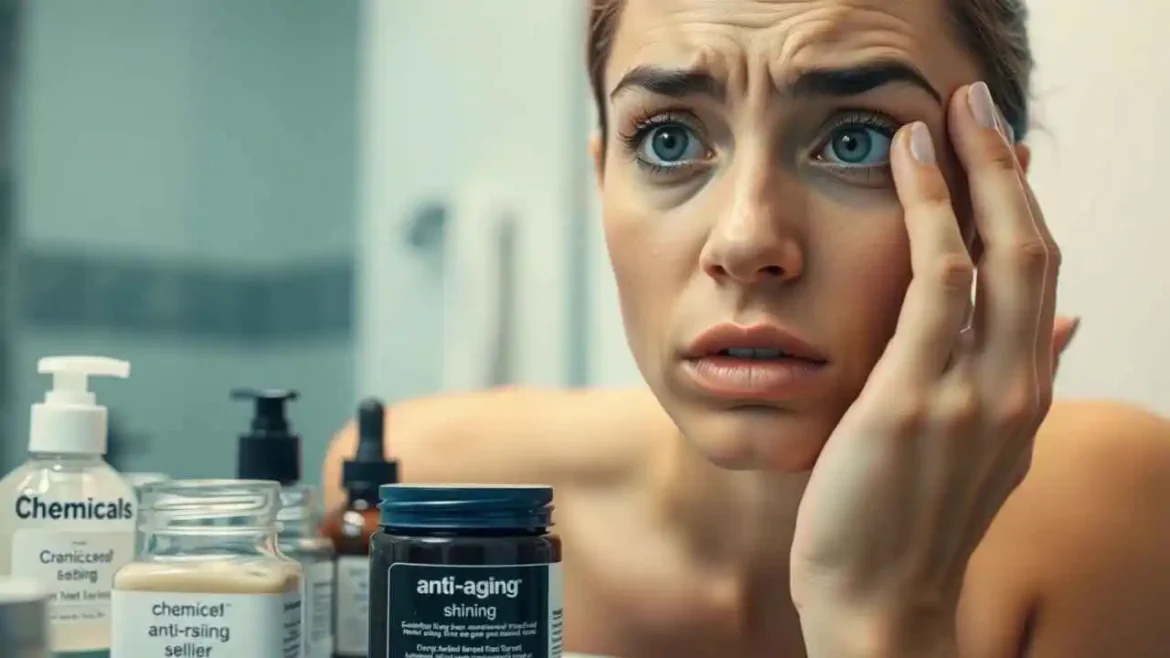
The Hidden Dangers of Anti-Aging treatments: Are You at Risk?
We have long been fascinated by the concept of eternal youth, a timeless human desire etched into our collective consciousness. From ancient elixirs to modern-day technological marvels, our quest for ageless beauty and vitality has driven countless innovations. In recent decades, this pursuit has led to an explosion in anti-aging injections and treatments, promising to smooth wrinkles, restore volume, and rewind the clock. What began as specialized medical procedures has now blossomed into a multi-billion-dollar industry, making these interventions more accessible than ever.
Initially, many of these treatments emerged from legitimate medical advancements, offering solutions for specific cosmetic or reconstructive needs. However, the rapid commercialization and widespread availability have begun to reveal a darker side. We are increasingly confronting the uncomfortable truth that while the allure of a youthful appearance remains potent, many anti-aging injections and treatments are turning out to be significant health hazards, posing alarmingly serious risks to those who seek them. Our collective enthusiasm has, in some cases, overshadowed the critical need for caution, regulation, and a thorough understanding of potential dangers.
As people seek to maintain youthfulness and vitality, anti-aging treatments—ranging from hormone therapies to peptide injections—have gained popularity. While these treatments promise improved energy, skin tone, and cognitive function, many are concerned about their impact on vital organs like the heart, liver, kidneys, and brain. Below is a comprehensive FAQ guide addressing common questions about how anti-aging injections and treatments affect organ health.
What Are Anti-Aging Injections and Treatments?
Anti-aging treatments aim to slow or reverse signs of aging by enhancing cellular repair, boosting hormone levels, or improving metabolic functions. These include:
– Human Growth Hormone (HGH) injections
– Testosterone or estrogen replacement therapy
– Peptide injections (e.g., BPC-157, Sermorelin)
– NAD+ infusions
– Vitamin and nutrient IV drips
– Stem cell therapy
These treatments are often marketed as ways to increase energy, improve sleep, enhance muscle tone, and promote mental clarity.
2. How Do Anti-Aging Injections Affect the Heart?
The heart is one of the most important organs affected by aging and anti-aging interventions. The effects vary depending on the treatment Human Growth Hormone (HGH):
Potential Benefits: May improve cardiac output and left ventricular function in deficient individuals.
Risks: Long-term use may lead to thickening of heart walls, irregular heartbeats, and increased risk of cardiovascular disease if not properly monitored.
Testosterone Therapy:
Benefits: Can improve libido, mood, and muscle mass.
Risks: Some studies suggest testosterone therapy might increase red blood cell count (polycythemia), which can strain the heart and raise the risk of blood clots or stroke.
Peptide Therapies:
BPC-157: Animal studies show potential for tissue healing but limited human data exists regarding long-term heart effects.
Sermorelin: Stimulates natural HGH production; generally safer than direct HGH injections but still requires monitoring.
Always consult with a cardiologist before starting any hormone-based anti-aging regimen, especially if you have pre-existing heart conditions.
3. Can Anti-Aging Treatments Harm the Liver?
Yes, some anti-aging treatments can place stress on the liver, particularly when used improperly or without medical supervision.
HGH and Insulin-Like Growth Factor 1 (IGF-1):
These hormones are processed by the liver. Excessive stimulation may lead to abnormal liver enzyme levels or fatty liver changes.
Steroid-Based Hormone Replacement:
Oral steroids can be more toxic to the liver than injectable forms. However, even injectables may alter liver metabolism over time.
NAD+ Infusions:
Generally considered safe, but high doses or frequent use may affect liver detoxification pathways.
Regular liver function tests are recommended for those undergoing long-term anti-aging therapies.
4. Do These Treatments Affect Kidney Function?
Kidneys filter waste from the blood, including metabolites of injected substances. Certain anti-aging treatments may impact kidney function:
HGH and Peptides:
May increase protein synthesis and nitrogen load, which the kidneys must process. This is usually not a concern for healthy individuals but could be problematic for those with existing kidney disease.
High-Dose Vitamin IVs:
Excess amounts of certain vitamins (like vitamin C or B-complex) can crystallize in the urine or cause electrolyte imbalances, potentially harming the kidneys.
Patients with reduced kidney function should avoid aggressive anti-aging regimens unless under strict medical supervision.
5. Are There Risks to Brain Health from These Treatments?
While some anti-aging treatments claim to boost cognitive performance, they also carry neurological risks:
HGH and IGF-1:
High levels may contribute to fluid retention in the brain, leading to headaches or increased intracranial pressure.
Peptides (e.g., Semax, Selank):
Often promoted for brain health and focus, but lack long-term safety data in humans.
NAD+ Therapy:
Positively impacts mitochondrial function and may support brain health, though more research is needed.
Cognitive improvements reported by users may also stem from placebo effects or secondary benefits like better sleep and energy.
6. Can Anti-Aging Injections Cause Hormonal Imbalance?
Yes, especially when administered without proper testing or oversight.
Overuse of HGH or testosterone can suppress the body’s natural hormone production.
This may lead to dependency on external sources and side effects like mood swings, fatigue, and sexual dysfunction.
Estrogen dominance in men can result from improper hormone balancing, increasing the risk of gynecomastia (male breast growth) and cardiovascular issues.
Regular blood work and working with an endocrinologist or functional medicine practitioner is crucial.
7. Are There Safe Alternatives to Injections for Anti-Aging?
Yes. For those concerned about injection-related risks, alternative approaches include:
Diet and lifestyle modifications: Antioxidant-rich diets, regular exercise, and adequate sleep naturally support longevity.
Supplements: Resveratrol, CoQ10, collagen peptides, and omega-3s offer anti-aging benefits with fewer risks.
Topical treatments: Retinoids and antioxidants can reduce visible signs of aging without systemic effects.
Low-dose hormone therapy: Tailored under medical guidance to restore balance rather than exceed normal levels.
8. Who Should Avoid Anti-Aging Injections?
Certain populations should avoid or proceed with caution:
People with cancer history: Growth factors and HGH may stimulate tumor growth.
Those with heart disease: Especially arrhythmias or congestive heart failure.
Individuals with liver or kidney disease: Metabolic burden may worsen organ function.
Pregnant or breastfeeding women: Safety data is lacking for most anti-aging compounds.
Young adults without deficiencies:** Unnecessary use can disrupt natural hormone regulation.
9. How to Safely Use Anti-Aging Treatments?
To minimize risks and maximize benefits:
Consult a licensed healthcare provider, preferably with expertise in endocrinology or anti-aging medicine.
Undergo baseline testing for hormone levels, organ function, and cardiovascular health.
Monitor regularly with follow-up labs and check-ups.
Avoid self-prescribing or buying from unregulated sources.
Start with low doses and adjust based on response and tolerance.
10. What Does the Research Say About Long-Term Effects?
Scientific consensus on long-term safety is limited:
HGH: Studies show mixed results. While it improves body composition, its long-term cardiovascular safety remains debated.
Peptides: Most research is preclinical (animal or lab-based), with few peer-reviewed human trials.
NAD+: Early evidence suggests potential neuroprotective and metabolic benefits, but long-term studies are lacking.
Testosterone: Meta-analyses indicate no significant increase in heart attack risk when used appropriately in deficient men.
Most experts agree that more research is needed to fully understand the long-term implications of these treatments.
The Allure vs. The Alarming Reality
The market is flooded with various anti-aging options, ranging from minimally invasive injectables to more complex procedures. We often hear about the immediate, seemingly miraculous results – the disappearance of fine lines, the plumpness of youthful skin, the sculpted contours of a rejuvenated face. Yet, what is frequently overlooked or downplayed are the risks, some of which can be life-altering or even fatal. The sheer volume of procedures, coupled with a largely unregulated industry in many parts of the world, has created a fertile ground for complications.
“The desire to remain youthful is deeply ingrained in human nature. However, the unchecked proliferation of anti-aging treatments, often administered by unqualified individuals and utilizing unproven substances, has transformed this aspiration into a significant public health concern. We are witnessing a troubling rise in severe complications that underscore the critical need for stricter regulation and greater public awareness.” — Dr. Evelyn Reed, Medical Ethicist & Dermatologist (fictional attribution for illustrative purposes)
Let us delve into some of the most common anti-aging treatments and the specific health hazards we are now observing.
The Perils of Injectables: Botox and Dermal Fillers





